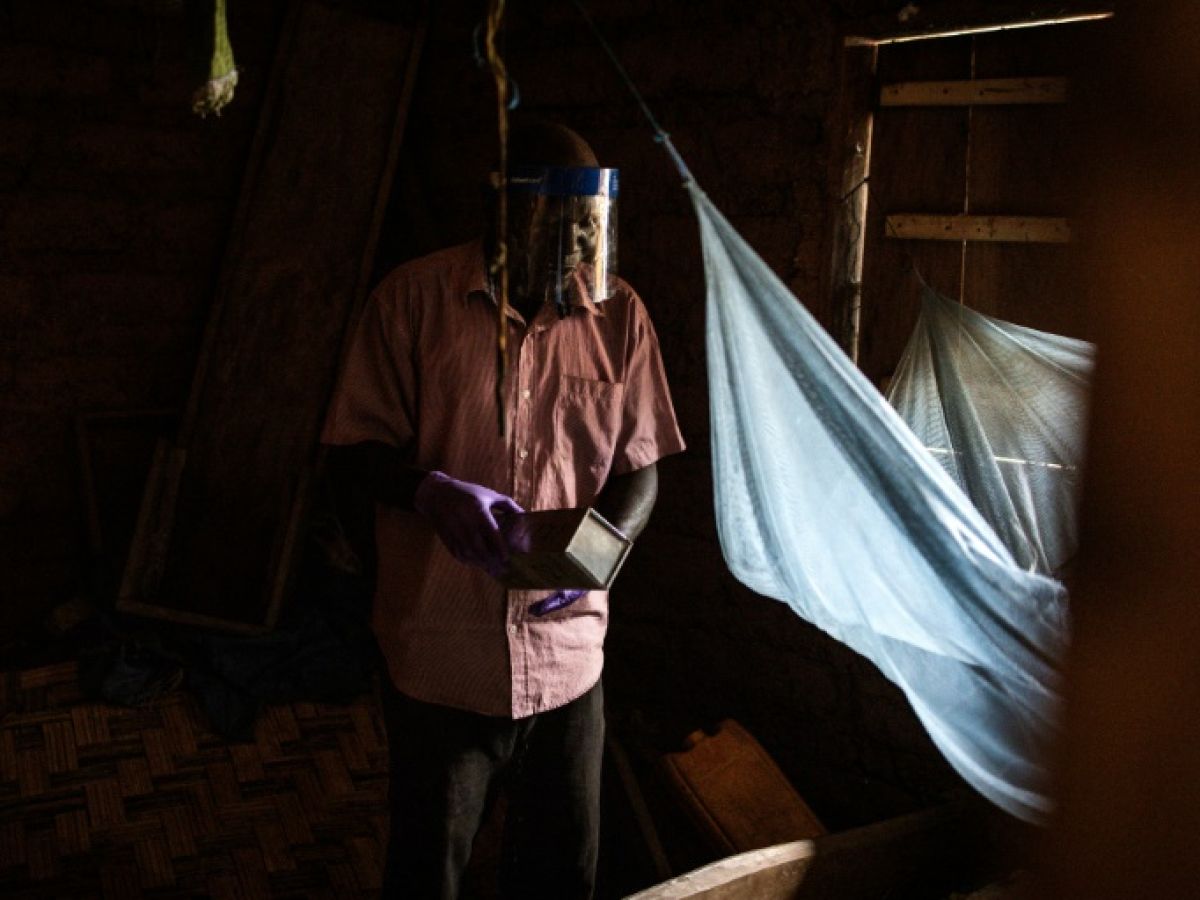In Pakistan, the last country in the world along with Afghanistan where polio remains endemic, vaccinators must convince reluctant parents despite persistent suspicion and deadly attacks.
Ismail Shah has experienced the lack of vaccines first-hand. "As a child, I caught polio and vowed to eradicate it," the vaccinator from Panam Dehri township in the mountainous Khyber Pakhtunkhwa province, on the border with Afghanistan, told AFP.
Like 400,000 volunteers and employees, for a week he went from house to house and tirelessly repeated that the vaccine – oral and in two doses – was safe.
The goal is to vaccinate 45 million children - because to immunize an infected area, 90% of the children there must be vaccinated, according to the World Health Organization (WHO).

This campaign is special because although the State and international donors have been conducting it for years, in 2024 the situation is urgent.
Already 45 children have been infected since January, far more than in the previous three years, when Pakistan thought it was almost done with the disease after peaks of 20,000 cases a year in the 1990s.
But the path is far from easy, says Mr Shah, 35: when he arrived in the village of 40,000 inhabitants, "more than 1,000 people" refused the vaccine.
– CIA, pork vaccine and blackmail –
Despite his dragging leg, he set about convincing them one by one of the dangers of this extremely contagious disease caused by a virus that invades the nervous system and can cause irreversible paralysis.

"I worked hard and today there are only 94 holdouts left," he assures.
"I initially refused the vaccine for my children," admits Zulfiqar, 40, assuring that a policeman and a local civil servant tried in vain to convince him.
“It was finally my imam who reassured me by explaining that he had had his children vaccinated.”
The organization of a fake vaccination campaign by the CIA to locate the leader of Al-Qaeda and mastermind of September 11, Osama bin Laden, killed in 2011 in the north of the country, is on everyone's mind.
In the village, says resident Ehsanullah, "nearly half the parents said the vaccine was a Western plot."
Ultra-conservative clerics have also spread rumors that the vaccines cause infertility, or contain pork or alcohol, which are forbidden by Islam.
False, replies Imam Tayyeb Qourechi: "religious edicts have been published and clearly say that there is no problem with the vaccine, on the contrary it is the duty of parents."

But some are still using the vaccine as a bargaining chip with a state that is struggling to provide public services, said Ayesha Raza, a spokeswoman for the government's anti-polio programme.
"Some communities have understood the importance for the government of the eradication of polio and they are demanding better access to water or new roads" to vaccinate their children, she explains to AFP.
"Even if some requests are justified, they should not put a strain on the health of children."
– Deadly attacks –
And the mission of vaccinators is not without risk: caregivers and the police officers who protect them are regularly the target of Islamist attacks.

On Friday, seven people, including five girls, were killed in the southwest of the country in an unclaimed attack targeting police officers working in the anti-polio campaign.
Three days earlier, two police officers were killed in Khyber Pakhtunkhwa, bringing the death toll in anti-polio campaigns since January to at least 16.
These repeated attacks led to a police strike in September.
Not enough to stop Raheela Bibi from continuing her door-to-door canvassing.
"My family says I am in danger but I reply that we are closely protected, the police never leave us alone," explains this 28-year-old vaccinator.
“It saddens us to hear that our colleagues have been attacked, but we continue our work to prevent future disabilities,” insists her colleague Zainab Sultan.
"We must continue to vaccinate even if there is only one case left in the country," said Ms Raza, acknowledging "excessive confidence" in the past.
The new goal is to eradicate polio in Pakistan within six months, she said, by "synchronizing campaigns with Afghanistan."

Because the two countries share a porous border happily crossed by migrants, sometimes not immunized, who have been increasingly numerous since the Taliban returned to power in 2021.
Beyond vaccines, food aid will also be needed because the doses are ineffective in children suffering from malnutrition.
According to UNICEF, 11 million Pakistani children under the age of five suffer from severe food poverty.

